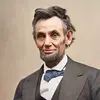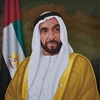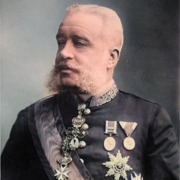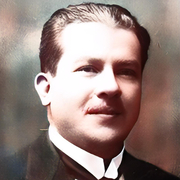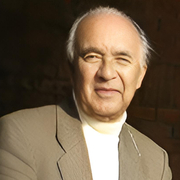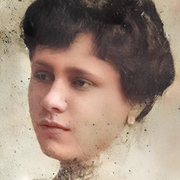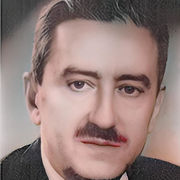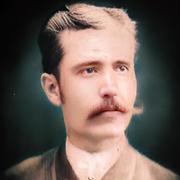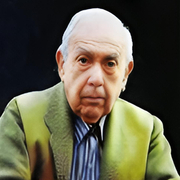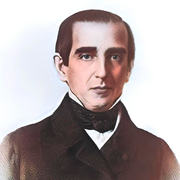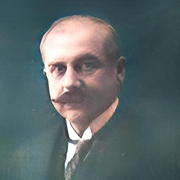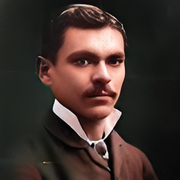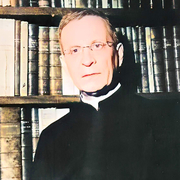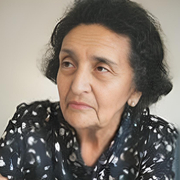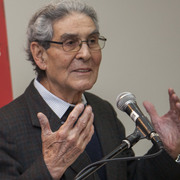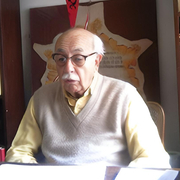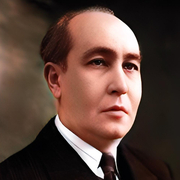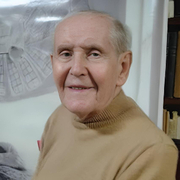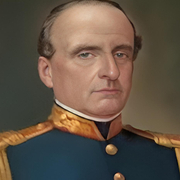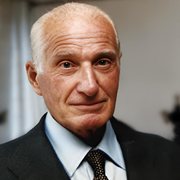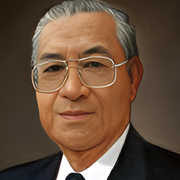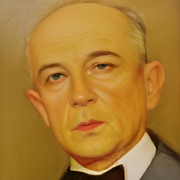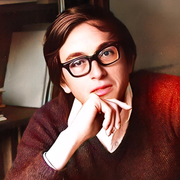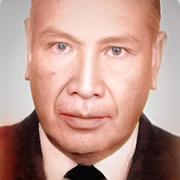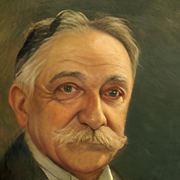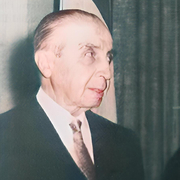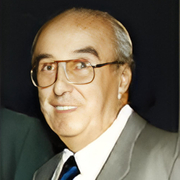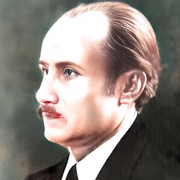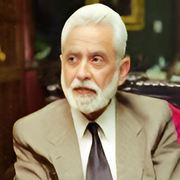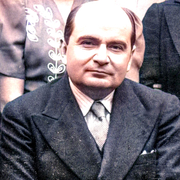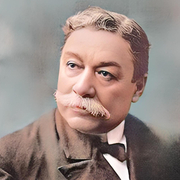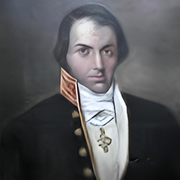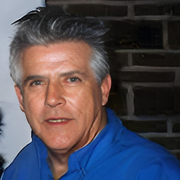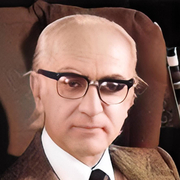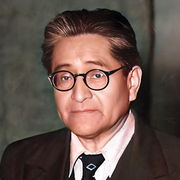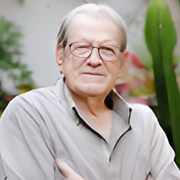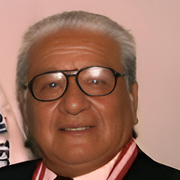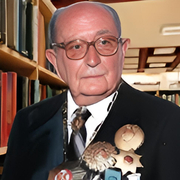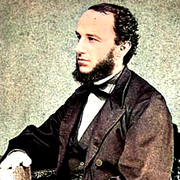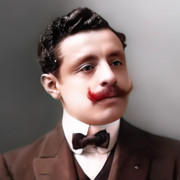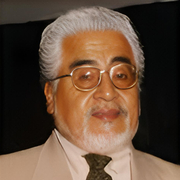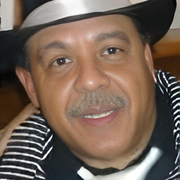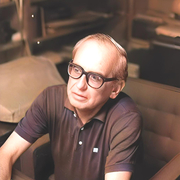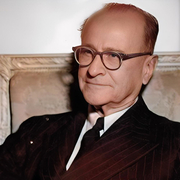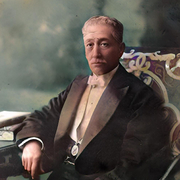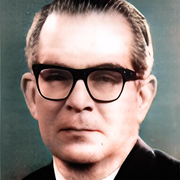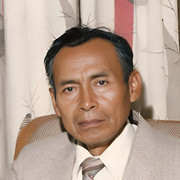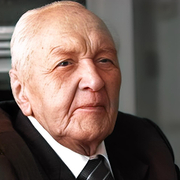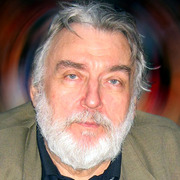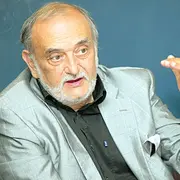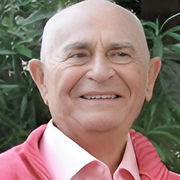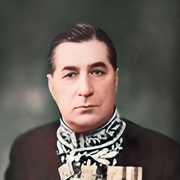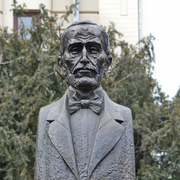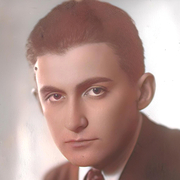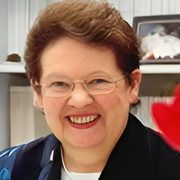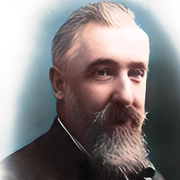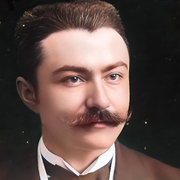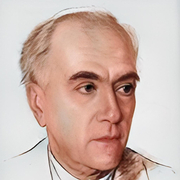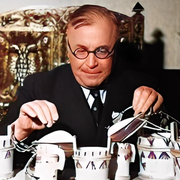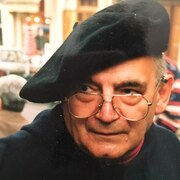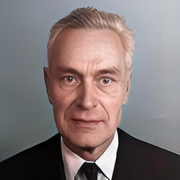 Sophia de Mello Breyner Andresen
1919 - 2004
Poet and writer
Sophia de Mello Breyner Andresen
1919 - 2004
Poet and writer
 Liu Chi-chun
1908 - 1999
First Lady of the Republic of China
Liu Chi-chun
1908 - 1999
First Lady of the Republic of China
 George Calinescu
1899 - 1965
Literary critic, historian, novelist
George Calinescu
1899 - 1965
Literary critic, historian, novelist
 Alexander Goldenweiser
1880 - 1940
Anthropologist
Alexander Goldenweiser
1880 - 1940
Anthropologist
 Abu Ibrahim al Hashimi al Qurashi
1976 - 2019
Leader of the Islamic State
Abu Ibrahim al Hashimi al Qurashi
1976 - 2019
Leader of the Islamic State
 Thawan Duchanee
1939 - 2014
Painter, Architect, Sculptor
Thawan Duchanee
1939 - 2014
Painter, Architect, Sculptor
 Olivia de Havilland
1916 - 2020
Actress of Hollywood’s Golden Age
Olivia de Havilland
1916 - 2020
Actress of Hollywood’s Golden Age
 Boonsong Lekagul
1907 - 1992
Medical Doctor, Conservationist
Boonsong Lekagul
1907 - 1992
Medical Doctor, Conservationist
 Rodrig Goliescu
1877 - 1942
Engineer, Inventor, Aviator
Rodrig Goliescu
1877 - 1942
Engineer, Inventor, Aviator
 Betty Cuthbert
1938 - 2017
Olympic champion
Betty Cuthbert
1938 - 2017
Olympic champion
 Americo Amorim
1934 - 2017
Cork industry leader
Americo Amorim
1934 - 2017
Cork industry leader
 Satoru Iwata
1959 - 2015
President and CEO of Nintendo
Satoru Iwata
1959 - 2015
President and CEO of Nintendo
 Ch'oe Che-u
1824 - 1864
Founder of the Tonghak sect
Ch'oe Che-u
1824 - 1864
Founder of the Tonghak sect
 Margarita Salas
1938 - 2019
Biochemistry and molecular genetics
Margarita Salas
1938 - 2019
Biochemistry and molecular genetics
 Alex Ekwueme
1932 - 2017
Vice president of Nigeria
Alex Ekwueme
1932 - 2017
Vice president of Nigeria
 Manuel de Abreu
1894 - 1962
Physician and scientist
Manuel de Abreu
1894 - 1962
Physician and scientist
 Stanko Premrl
1880 - 1965
composer, music teacher
Stanko Premrl
1880 - 1965
composer, music teacher
 Natasja Saad
1974 - 2007
Singer and deejay
Natasja Saad
1974 - 2007
Singer and deejay
 Sun Yat sen
1866 - 1925
Founder of the Republic of China
Sun Yat sen
1866 - 1925
Founder of the Republic of China
 Cecile Aubry
1928 - 2010
Actress, author, television screenwriter
Cecile Aubry
1928 - 2010
Actress, author, television screenwriter
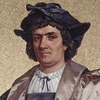 Christopher Columbus
1541 - 1506
Explorer
Christopher Columbus
1541 - 1506
Explorer
 Lies Permana Lestari
1900 - 1967
Actress
Lies Permana Lestari
1900 - 1967
Actress
 Shashikala
1932 - 2021
Supporting roles in Bollywood films and TV serials
Shashikala
1932 - 2021
Supporting roles in Bollywood films and TV serials
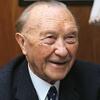 Konrad Adenauer
1876 - 1967
Konrad Adenauer
1876 - 1967
 Suryatati Abdul Manan
1953 - 2021
Regent of Southeast Minahasa
Suryatati Abdul Manan
1953 - 2021
Regent of Southeast Minahasa
 Heo Nanseolheon
1563 - 1589
poet and painter of the Joseon dynasty
Heo Nanseolheon
1563 - 1589
poet and painter of the Joseon dynasty
 Malaysia Vasudevan
1944 - 2011
Playback singer and actor in Tamil cinema
Malaysia Vasudevan
1944 - 2011
Playback singer and actor in Tamil cinema
 Ayinde Bakare
1912 - 1972
Jùjú and highlife bandleader
Ayinde Bakare
1912 - 1972
Jùjú and highlife bandleader
 Manfredo do Carmo
1928 - 2018
differential topology, algebraic topology
Manfredo do Carmo
1928 - 2018
differential topology, algebraic topology
 Homer
-701 - -800
Epic poet
Homer
-701 - -800
Epic poet
 Cathal Goulding
1923 - 1998
IRA chief of staff
Cathal Goulding
1923 - 1998
IRA chief of staff
 Hatem Ali
1962 - 2020
Director, Writer, Actor
Hatem Ali
1962 - 2020
Director, Writer, Actor
 Fran Saleski Finzgar
1871 - 1962
Writer
Fran Saleski Finzgar
1871 - 1962
Writer
 Amalia da Piedade Rebordao Rodrigues
1920 - 1999
Fado singer
Amalia da Piedade Rebordao Rodrigues
1920 - 1999
Fado singer
 Iulia Hasdeu
1869 - 1888
Poet
Iulia Hasdeu
1869 - 1888
Poet
 Vlad II Dracul
-1395 - 1447
Voivode of Wallachia
Vlad II Dracul
-1395 - 1447
Voivode of Wallachia
 Mohammad Taqi al Khoei
1954 - 1994
Shia scholar and philanthropist
Mohammad Taqi al Khoei
1954 - 1994
Shia scholar and philanthropist
 Ismail Sidky
1875 - 1950
Prime Minister of Egypt
Ismail Sidky
1875 - 1950
Prime Minister of Egypt
 Quang Trung
1753 - 1792
Emperor
Quang Trung
1753 - 1792
Emperor
 Shintaro Ishihara
1932 - 2022
Governor of Tokyo
Shintaro Ishihara
1932 - 2022
Governor of Tokyo
 Yas Khidr
1964 - 2018
Iraqi singer and composer
Yas Khidr
1964 - 2018
Iraqi singer and composer
 Matija Jama
1872 - 1947
Impressionist Painter
Matija Jama
1872 - 1947
Impressionist Painter
 Bao Dai
1913 - 1997
Emperor
Bao Dai
1913 - 1997
Emperor
 Ismail Gulgee
1926 - 2007
Painter and sculptor
Ismail Gulgee
1926 - 2007
Painter and sculptor
 Shu Uemura
1928 - 2007
Makeup artist and founder of Shu Uemura Cosmetics
Shu Uemura
1928 - 2007
Makeup artist and founder of Shu Uemura Cosmetics
 Widjojo Nitisastro
1917 - 2001
President Director of Pertamina
Widjojo Nitisastro
1917 - 2001
President Director of Pertamina
 Agoston Pavel
1886 - 1946
Ethnologist
Agoston Pavel
1886 - 1946
Ethnologist
 Said of Egypt
1822 - 1863
Wali of Egypt and Sudan
Said of Egypt
1822 - 1863
Wali of Egypt and Sudan
 Rosihan Anwar
1922 - 2011
Press pioneer and political analyst
Rosihan Anwar
1922 - 2011
Press pioneer and political analyst
 Chaerul Saleh
1916 - 1967
Deputy Prime Minister, Minister
Chaerul Saleh
1916 - 1967
Deputy Prime Minister, Minister
 Jean du Vergier de Hauranne
1581 - 1643
Jansenism leader
Jean du Vergier de Hauranne
1581 - 1643
Jansenism leader
 Suleiman the Magnificent
1494 - 1566
Sultan of the Ottoman Empire
Suleiman the Magnificent
1494 - 1566
Sultan of the Ottoman Empire
 Lucian Blaga
1895 - 1961
philosopher, poet
Lucian Blaga
1895 - 1961
philosopher, poet
 Ahmet Zogu
1895 - 1961
First King of Albania (1928-1939)
Ahmet Zogu
1895 - 1961
First King of Albania (1928-1939)
 Buddhadasa Bhikkhu
1906 - 1993
Buddhist Monk, Philosopher
Buddhadasa Bhikkhu
1906 - 1993
Buddhist Monk, Philosopher
 Raed Fares
1972 - 2018
Founder of Radio Fresh FM
Raed Fares
1972 - 2018
Founder of Radio Fresh FM
 Thach Lam
1910 - 1942
Writer
Thach Lam
1910 - 1942
Writer
 Fazal Haq Mujahid
1954 - 1997
Military and political leader against Soviet Union
Fazal Haq Mujahid
1954 - 1997
Military and political leader against Soviet Union
 Johannes Brahms
1833 - 1897
Composer and pianist of the Romantic period
Johannes Brahms
1833 - 1897
Composer and pianist of the Romantic period
 Paul Constantinescu
1909 - 1963
composer
Paul Constantinescu
1909 - 1963
composer
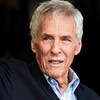 Burt Freeman Bacharach
1928 - 2023
Composer Songwriter Singer Pianist producer
Burt Freeman Bacharach
1928 - 2023
Composer Songwriter Singer Pianist producer
 Rexho Mulliqi
1923 - 1982
Conductor and composer
Rexho Mulliqi
1923 - 1982
Conductor and composer
 Sid Vicious
1957 - 1979
Bassist for the Sex Pistols
Sid Vicious
1957 - 1979
Bassist for the Sex Pistols
 Henry IV of England
1367 - 1413
King of England and Lord of Ireland
Henry IV of England
1367 - 1413
King of England and Lord of Ireland
 Rui Barbosa
1849 - 1923
Writer, diplomat, orator
Rui Barbosa
1849 - 1923
Writer, diplomat, orator
 Caspar David Friedrich
1774 - 1840
Romantic landscape painter
Caspar David Friedrich
1774 - 1840
Romantic landscape painter
 Gamal al-Ghitani
1945 - 2015
Historical and political novels and commentaries
Gamal al-Ghitani
1945 - 2015
Historical and political novels and commentaries
 Dragotin Cvetko
1911 - 1993
Musicologist
Dragotin Cvetko
1911 - 1993
Musicologist
 Prayoon Yomyiam
1933 - 2010
Folk Singer
Prayoon Yomyiam
1933 - 2010
Folk Singer
 Edvard Storm
1749 - 1794
Poet, songwriter and educator
Edvard Storm
1749 - 1794
Poet, songwriter and educator
 Lam Qua
1801 - 1860
Painter of Western-style portraits
Lam Qua
1801 - 1860
Painter of Western-style portraits
 Hosni Mubarak
1928 - 2020
President of Egypt
Hosni Mubarak
1928 - 2020
President of Egypt
 Henrik Anker Bjerregaard
1792 - 1842
Poet and judge
Henrik Anker Bjerregaard
1792 - 1842
Poet and judge
 Mumtaz Rashidi
1934 - 2004
Social worker and writer
Mumtaz Rashidi
1934 - 2004
Social worker and writer
 Rasmus Loland
1861 - 1907
Children's writer
Rasmus Loland
1861 - 1907
Children's writer
 Gustavo Adolfo Becquer
1836 - 1870
Poet, writer, journalist,author of Rimas Leyendas
Gustavo Adolfo Becquer
1836 - 1870
Poet, writer, journalist,author of Rimas Leyendas
 Adrian Quist
1913 - 1991
Tennis player
Adrian Quist
1913 - 1991
Tennis player
 Alexander Andreyevich Ivanov
1806 - 1858
Painter of historical and religious subjects
Alexander Andreyevich Ivanov
1806 - 1858
Painter of historical and religious subjects
 Syed Zahoor Qasim
1926 - 2015
Marine biologist and Antarctic explorer
Syed Zahoor Qasim
1926 - 2015
Marine biologist and Antarctic explorer
 Joze Javorsek
1920 - 1990
Playwright
Joze Javorsek
1920 - 1990
Playwright
 Nitin Chandrakant Desai
1965 - 2023
Art director and production designer
Nitin Chandrakant Desai
1965 - 2023
Art director and production designer
 Charles de Foucauld
1858 - 1916
Catholic priest
Charles de Foucauld
1858 - 1916
Catholic priest
 Johnny Raper
1939 - 2022
Rugby league player and coach
Johnny Raper
1939 - 2022
Rugby league player and coach
 Herbert von Bismarck
1849 - 1904
Foreign Secretary of Germany
Herbert von Bismarck
1849 - 1904
Foreign Secretary of Germany
 Lech Kaczynski
1949 - 2010
President of Poland
Lech Kaczynski
1949 - 2010
President of Poland
 Cindy Williams
1947 - 2023
actress
Cindy Williams
1947 - 2023
actress
 Liang Shiyi
1634 - 1711
Premier of the Republic of China
Liang Shiyi
1634 - 1711
Premier of the Republic of China
 Rigas Feraios
1757 - 1798
Leader of the Greek Enlightenment
Rigas Feraios
1757 - 1798
Leader of the Greek Enlightenment
 Guan Zilan
1903 - 1986
Avant-garde painter
Guan Zilan
1903 - 1986
Avant-garde painter
 Genda Minoru
1904 - 1989
Planner of the Pearl Harbor attack
Genda Minoru
1904 - 1989
Planner of the Pearl Harbor attack
 John Henry Bonham
1948 - 1980
Drummer of Led Zeppelin
John Henry Bonham
1948 - 1980
Drummer of Led Zeppelin
 Umi Dachlan
1942 - 2009
Pioneering Indonesian painter and art lecturer
Umi Dachlan
1942 - 2009
Pioneering Indonesian painter and art lecturer
 Leon Petrazycki
1867 - 1931
Legal scholar
Leon Petrazycki
1867 - 1931
Legal scholar
 Ingeborg Krafft
1902 - 1963
Architect
Ingeborg Krafft
1902 - 1963
Architect
 Balakrishnan Nair
1933 - 2000
Indian film actor and theatre artist
Balakrishnan Nair
1933 - 2000
Indian film actor and theatre artist
 Catherine of Alexandria
-287 - -305
Christian martyr and virgin
Catherine of Alexandria
-287 - -305
Christian martyr and virgin
 Leonel Brizola
1922 - 2004
Governor of Rio Grande do Sul and Rio de Janeiro
Leonel Brizola
1922 - 2004
Governor of Rio Grande do Sul and Rio de Janeiro
 Marigo Posio
1882 - 1932
Embroiderer of the Albanian flag
Marigo Posio
1882 - 1932
Embroiderer of the Albanian flag
 Emily Elizabeth Dickinson
1830 - 1886
Poet
Emily Elizabeth Dickinson
1830 - 1886
Poet
 Vasily Golubev
1957 - 2023
Governor of Rostov Oblast
Vasily Golubev
1957 - 2023
Governor of Rostov Oblast
 Kido Takayoshi
1833 - 1877
One of the leaders of the Meiji Restoration
Kido Takayoshi
1833 - 1877
One of the leaders of the Meiji Restoration
 Pompiliu Constantinescu
1901 - 1946
Literary Critic
Pompiliu Constantinescu
1901 - 1946
Literary Critic
 Nico Minardos
1930 - 2011
Actor and producer
Nico Minardos
1930 - 2011
Actor and producer
 Mike Mohede
1983 - 2016
Vocalist of Kahitna
Mike Mohede
1983 - 2016
Vocalist of Kahitna
 Nelson Pereira dos Santos
1928 - 2018
Film director
Nelson Pereira dos Santos
1928 - 2018
Film director
 Mihal Zallari
1889 - 1964
Editor of Drita and The Adriatic Review
Mihal Zallari
1889 - 1964
Editor of Drita and The Adriatic Review
 Maqbool Fida Husain
1915 - 2011
Modernist painter and filmmaker
Maqbool Fida Husain
1915 - 2011
Modernist painter and filmmaker
 Tarcisio Meira
1935 - 2021
Theater and television actor
Tarcisio Meira
1935 - 2021
Theater and television actor
 Vasilya Fattakhova
1979 - 2016
Pop singer and actress
Vasilya Fattakhova
1979 - 2016
Pop singer and actress
 Nancy Lee
1970 - 2009
Mandopop singer
Nancy Lee
1970 - 2009
Mandopop singer
 Hasri Ainun Habibie
1937 - 2010
Physician and First Lady of Indonesia
Hasri Ainun Habibie
1937 - 2010
Physician and First Lady of Indonesia
 Svetopolk Pivko
1910 - 1987
Engineer and Professor
Svetopolk Pivko
1910 - 1987
Engineer and Professor
 Naimatullah Khan
1930 - 2020
Mayor of Karachi
Naimatullah Khan
1930 - 2020
Mayor of Karachi
 Ronald Ernest Aitchison
1921 - 1996
Physicist and electronics engineer
Ronald Ernest Aitchison
1921 - 1996
Physicist and electronics engineer
 Adam Schaff
1913 - 2006
Marxist philosopher and ideologue
Adam Schaff
1913 - 2006
Marxist philosopher and ideologue
 Ada Chaseliov
1952 - 2015
Actress of theater, cinema and television
Ada Chaseliov
1952 - 2015
Actress of theater, cinema and television
 Maria Dabrowska
1889 - 1965
Novelist, critic, translator
Maria Dabrowska
1889 - 1965
Novelist, critic, translator
 Max Born
1882 - 1970
Quantum mechanics pioneer
Max Born
1882 - 1970
Quantum mechanics pioneer
 Carlos Saura
1932 - 2023
Film director, producer, actor
Carlos Saura
1932 - 2023
Film director, producer, actor
 Hugh Leonard
1926 - 2009
Playwright, television writer, essayist
Hugh Leonard
1926 - 2009
Playwright, television writer, essayist
 Iftikhar Janjua
1922 - 1971
Major General of Pakistan Army
Iftikhar Janjua
1922 - 1971
Major General of Pakistan Army
 Affonso Eduardo Reidy
1909 - 1964
Modernist architect
Affonso Eduardo Reidy
1909 - 1964
Modernist architect
 Herbert Marcuse
1898 - 1979
Political philosopher and social theorist
Herbert Marcuse
1898 - 1979
Political philosopher and social theorist
 Isabel Cristina Leopoldina Augusta Micaela
1846 - 1921
Heiress and regent of the Empire of Brazil
Isabel Cristina Leopoldina Augusta Micaela
1846 - 1921
Heiress and regent of the Empire of Brazil
 Alfred Carl Fuller
1885 - 1973
Founder of the Fuller Brush Company
Alfred Carl Fuller
1885 - 1973
Founder of the Fuller Brush Company
 Princess Sophie of Greece and Denmark
1914 - 2001
Princess of Hesse-Kassel and Hanover
Princess Sophie of Greece and Denmark
1914 - 2001
Princess of Hesse-Kassel and Hanover
 Said al-Ghazzi
1893 - 1967
Prime Minister of Syria
Said al-Ghazzi
1893 - 1967
Prime Minister of Syria
 Paul Goma
1935 - 2020
Writer and dissident
Paul Goma
1935 - 2020
Writer and dissident
 Fernando Villaamil y Morillo
1845 - 1898
Spanish general and colonial administrator
Fernando Villaamil y Morillo
1845 - 1898
Spanish general and colonial administrator
 Pham Van Dong
1906 - 2000
Prime Minister
Pham Van Dong
1906 - 2000
Prime Minister
 Qiu Ying
1494 - 1552
Gongbi painter
Qiu Ying
1494 - 1552
Gongbi painter
 Nikolai Bogdanov Belsky
1870 - 1960
Art critic and historian
Nikolai Bogdanov Belsky
1870 - 1960
Art critic and historian
 Lojze Slak
1932 - 2011
Musician
Lojze Slak
1932 - 2011
Musician
 Julia Perez
1980 - 2017
Actress, singer, model, announcer
Julia Perez
1980 - 2017
Actress, singer, model, announcer
 Bruce Guthro
1961 - 2023
Singer-songwriter
Bruce Guthro
1961 - 2023
Singer-songwriter
 Waclaw Kuchar
1897 - 1981
Footballer, speed skater, ice hockey player
Waclaw Kuchar
1897 - 1981
Footballer, speed skater, ice hockey player
 Roberto Marinho
1904 - 2003
Founder and owner of Grupo Globo
Roberto Marinho
1904 - 2003
Founder and owner of Grupo Globo
 Ivan Bogdanov
1855 - 1932
Illustrations of Russian fairy tales
Ivan Bogdanov
1855 - 1932
Illustrations of Russian fairy tales
 Abdul Aziz al Hakim
1953 - 2009
Leader of Islamic Supreme Council of Iraq
Abdul Aziz al Hakim
1953 - 2009
Leader of Islamic Supreme Council of Iraq
 Philo of Alexandria
-15 - 50
Hellenistic Jewish philosopher
Philo of Alexandria
-15 - 50
Hellenistic Jewish philosopher
 Pavel Kunaver
1889 - 1988
Educator
Pavel Kunaver
1889 - 1988
Educator
 Barry Fitzgerald
1888 - 1961
Actor
Barry Fitzgerald
1888 - 1961
Actor
 Hammurabi
-1810 - -1750
King of Babylon
Hammurabi
-1810 - -1750
King of Babylon
 Syed Muhammad Imran Majeed
1961 - 2021
Surgeon General of Pakistan Army
Syed Muhammad Imran Majeed
1961 - 2021
Surgeon General of Pakistan Army
 Octavio Paz
1914 - 1998
Poet, Diplomat
Octavio Paz
1914 - 1998
Poet, Diplomat
 Oba Sir Musendiku Buraimoh Adeniji Adele II
1893 - 1964
Oba of Lagos
Oba Sir Musendiku Buraimoh Adeniji Adele II
1893 - 1964
Oba of Lagos
 Barbara Piasecka Johnson
1937 - 2013
Heiress of Johnson & Johnson fortune
Barbara Piasecka Johnson
1937 - 2013
Heiress of Johnson & Johnson fortune
 Marie Laforet
1939 - 2019
Singer and actress
Marie Laforet
1939 - 2019
Singer and actress
 Veljko Rus
1929 - 2018
Sociologist
Veljko Rus
1929 - 2018
Sociologist
 Wang Yuanqi
1642 - 1715
Landscape painter and theorist
Wang Yuanqi
1642 - 1715
Landscape painter and theorist
Top 10 Died Influential People
Show AllToday's Death Anniversary
Show AllToday's Birth
Show AllDead People On Map
Show AllLoading
Preparing Map...
--
--
Age:
--
--
Resting Place:
--
--
Slogan:
--
World dead famouses:
Tap To Show
Why our famous is important?
Juan Martin Diez
Abraham Lincoln
Robert Gordon Menzies
Nizar Qabbani
Guangzong
Pyotr Bagration
William Shakespeare
Agus Salim
Lars Kruse
Edvard Grieg
Celebrities & culture of countries
The purpose of lorem ipsum is to create a natural looking block of text (sentence, paragraph, page, etc.) that doesn't distract from the layout. A practice not without controversy, laying out pages with meaningless filler text can be very useful when the focus is meant to be on design, not content. The passage experienced a surge in popularity during the 1960s when Letraset used it on their dry-transfer sheets, and again during the 90s as desktop publishers bundled the text with their software. Today it's seen all around the web; on templates, websites, and stock designs. Use our generator to get your own, or read on for the authoritative history of lorem ipsum.
More Information























